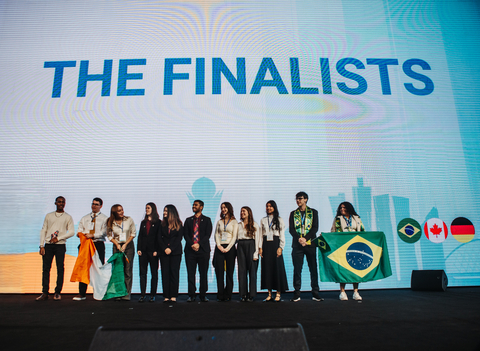As industries worldwide grapple with ageing infrastructure and critical workforce shortages, a new global initiative is tapping into student innovation to bridge the gap. Bentley Systems, a Nasdaq-listed infrastructure software company, has launched the 2025 iTwin4Good Challenge in collaboration with Enactus, the global student entrepreneurship non-profit.
The international competition, now in its second year, invites university students from across five regions—the United States, Germany, Canada, the UK and Ireland, and Brazil—to develop digital twin applications aimed at solving pressing social and environmental challenges in their communities.
Digital twin technology, which creates real-time digital replicas of physical infrastructure systems, is increasingly seen as a transformative solution for the global engineering and construction industries. Yet the sectors face mounting delays due to workforce shortages: the ACEC Research Institute reports nearly half of engineering firms are facing project backlogs of a year or more, and the construction industry is missing over 400,000 workers, according to data from the Associated Builders and Contractors.
This talent shortage has spurred the development of iTwin4Good as both a skills accelerator and a talent pipeline. The programme offers students a six-week intensive curriculum that includes technical training on Bentley’s iTwin platform, mentorship from industry professionals, and the opportunity to earn an iTwin Developer Associate certification. Participants can enter individually or in teams of up to three.
“This is more than a competition—it’s an investment in the future of infrastructure,” said Chris Bradshaw, Chief Sustainability and Education Officer at Bentley Systems. “By combining social impact with emerging technology, we are helping to build the next generation of problem-solvers who understand how to create sustainable, resilient infrastructure.”
The national phases of the challenge run from June to October 2025, with each region hosting its own preliminary rounds. Finalists from each country will pitch their ideas to panels of industry judges. The best teams from each region will move on to a virtual global finale—dubbed the “Champions of Champions”—with the winning team earning an invitation to attend the Enactus World Cup 2025 in Bangkok, Thailand.
For Enactus, the programme aligns closely with its mission to empower students through socially driven entrepreneurship.
“This is what we do best—equip students with the tools and the confidence to innovate for good,” said George Tsiatis, CEO of Enactus Global & Resolution Project. “When young people apply advanced tech like digital twins with purpose, they don’t just solve today’s problems. They help build a more equitable and sustainable future.”
The initiative is already gaining recognition for its real-world relevance. Last year’s finalists developed solutions addressing flood resilience, energy efficiency, and public health infrastructure in vulnerable regions—including standout entries from Kazakhstan, whose presentations remain available online.
By transforming the classroom into a launchpad for smart infrastructure solutions, the iTwin4Good Challenge is offering students a new kind of engineering education—one grounded not only in technical excellence, but also in social impact.

